Spoiler Alert: If you’re reading this, then you mostly have already seen PSYCHO and know it’s classic twist. However, I am also going to discuss the A&E series Bates Motel as it is now come to an end and felt it necessary to involve it in this piece.
Back in 1960, Alfred Hitchcock released one of the most influential films in history and, at the time, also one of the most controversial. The story of Norman Bates, a motel owner who takes on the persona of his dead mother when life gets too real, is now a staple in pop culture. One does not need to have ever watched the film to get the references, but now it’s a question of which Norman Bates people are referring to as he has now become the subject of a hit TV series as well. Initially, the idea of a Bates TV show came off as gimmicky. With a bunch of television genre reboots in the works, this one seemed like a last-minute idea. Fans hesitated especially after the critical and box office disaster that was Gus Van Sant’s 1998 remake. However, the PSYCHO legacy has been reignited and a new generation are now being introduced to Norman as the show created a new universe that went against expectations for life-long fans.
Hitchcock’s original has helped set several standards not only in the horror genre, but in overall cinema itself. Audiences were engaged with Marion Crane, the blond secretary who runs off with $40,000 she steals from work. She leaves town, hoping to surprise her lover, Sam Loomis, with the funds as they cannot move on in their relationship due to his financial hardships. Her trip involves interaction with the police, paying cash for a new car (“It’s the first time the customer ever high pressured the salesman.”), and checking into the Bates Motel.
It’s there Marion meets Norman who clearly needs someone to talk to outside of his demanding mother who stays in the house behind the motel. Marion and Norman share a conversation about the concept of running away from your problems as she clearly is doing and even suggests he do the same. However, he convinces her that running away will do him no good and will leave behind an emotional grudge that will always haunts him. This brings Marion back to reality and she decides that after a good night’s sleep, she is going back home and attempt to make things right.
Marion never makes it to morning as she is stabbed to death in the shower by a dark, but feminine figure. Norman finds her body, believing it to be the result of his crazy mother, and wipes the evidence clean. This sparks an investigation as not only is Marion now missing, but whatever happened to the $40,000? Shocking twist: the money is buried in the swamp along with Marion’s body as Norman never had any indication of stolen cash. Marion’s sister, Lila, and Sam embark on their own suspicions and find that not only has Norman’s mother been dead for several years, but Norman has been murdering people while taking on her persona due to a traumatizing upbringing.
Upon its release, PSYCHO was met with plenty of controversy. The opening scene where Sam and Marion are in bed after sex and she’s in a bra was considered inappropriate at the time and was meant to be reshot for censorship purposes, but was left in. One odd note is that during a later scene, censors took issue with seeing a flushing toilet onscreen. Apparently, toilets had only been around for hundreds of years and it was just too soon for Americans to see this be utilized. Marion’s now infamous shower scene had to be carefully edited to avoid nudity even though one can argue we can still see breasts. Although we see the knife penetrating skin, the shots of the knife going up and down along with the sound effects created a sense of discomfort and this onscreen violence was considered a bit escalated for the time.
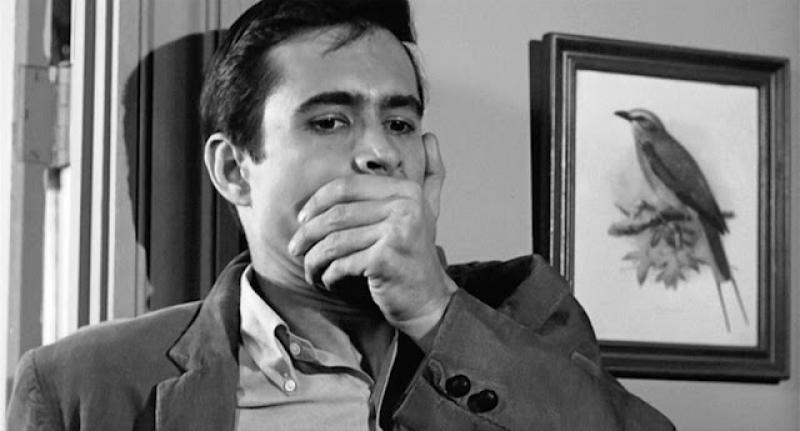
For me, it’s the performances that drive the movie and why I love it so much. Janet Leigh manages to create a character who does a bad thing feel so relatable. She’s dangerously in love and this drives her to poor decisions that end up getting her killed. Still, there’s a sense of darkness in her as she drives to see Sam and imagines the conversations the people back home are having about her. Her expressions go from anxious to almost getting off on the fact that she just screwed over her boss. Anthony Perkins creates a one of a kind persona with Norman, showing us that someone who is in dire need of real companionship can also be your local serial killer. What makes him so unique is that there’s no indication at first that he might be behind the murders. He seems more of a loner who would do anything for his sick mother as she and the motel are all he knows. This unpredictability, however, does not translate over to Gus Van Sant’s shot-for-shot remake.
Remakes have always been around, but shot for shot remakes are typically unheard of. Hitchcock’s original is known for both its creative and technical achievements and 1998’s PSYCHO attempts to recreate that process with slight updates and awkward performances. The first obvious change is that it’s in color. While a product of modernizing a film from the 1960s, wardrobe choices make it confusing as what decade we are in without that title card letting us know it is 1998. Marion wears vibrant colors and some of the cast sport designs that come straight out of the film within a film in MULHOLLAND DRIVE. Another not so subtle change is that Lila owns a Walkman and refuses to remove her headphones even when speaking with the local sheriff. If one sets out to remake a movie shot for shot, then stick with it. The changes only create an unstable art project that is not sure what kind of film it wants to be, or even what time period.
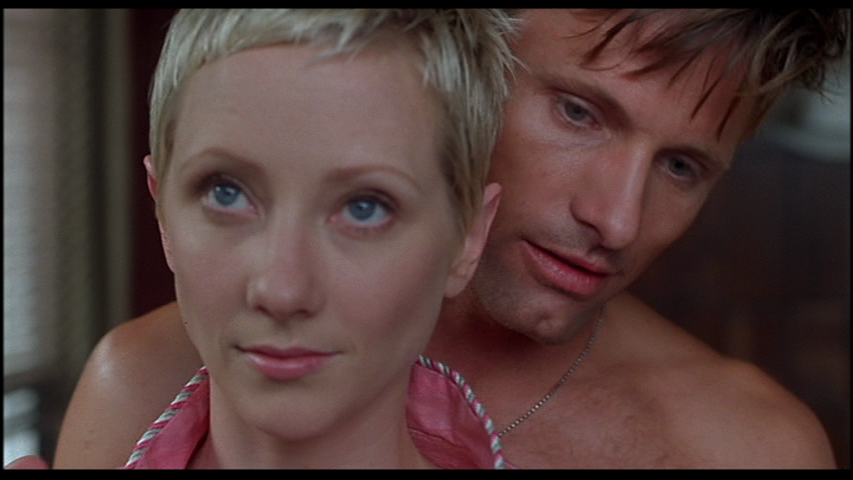
One scene that filmgoers were curious about was the shower scene. While not much could be shown on screen in 1960, the late ’90s are a whole different story. Films like SCREAM and I KNOW WHAT YOU DID LAST SUMMER proved that audiences were willing to pay for slasher films and onscreen violence could pushed further. That opportunity was not used here, but there’s a slight pause when the shower curtain opens. We get a gasp, a really good scream I have to admit from Anne Heche, and a couple flashes of a cloudy sky intercut with her being stabbed. No penetration again, but the scene this time around feels staged.
Like most of the remake, the shower scene feels a bit robotic, a going through the motions vibe. Due to the shot by shot nature, it shouldn’t be surprising that some of the actors look like they’re counting towards their mark and, at times, reading off cue cards. Vince Vaughn as Norman Bates is the biggest offender, as casual chuckles come off as forced and rather uncomfortable. This Norman is a nervous wreck and clearly in need of some medical attention. Vaughn as Norman Bates feels like the guy you make sure your kids stay away from at the grocery store. Probably no fault of Vaughn’s, but Norman peeping at Marion undressing has now become a comedic scene as he starts masturbating rather loudly. The word “moist” comes to mind. It’s also a bit ironic, as Vaughn’s performance comes off as very homosexual. His interactions with other men resembles that of a teenager who just came out of the closet and is about to pay cover at his first gay club. This makes Marion’s murder all the more puzzling as she really isn’t much of a threat to Norman’s sexuality as Heche’s performance make it clear that she’s scared of him and wants to get out of the room as soon as possible.
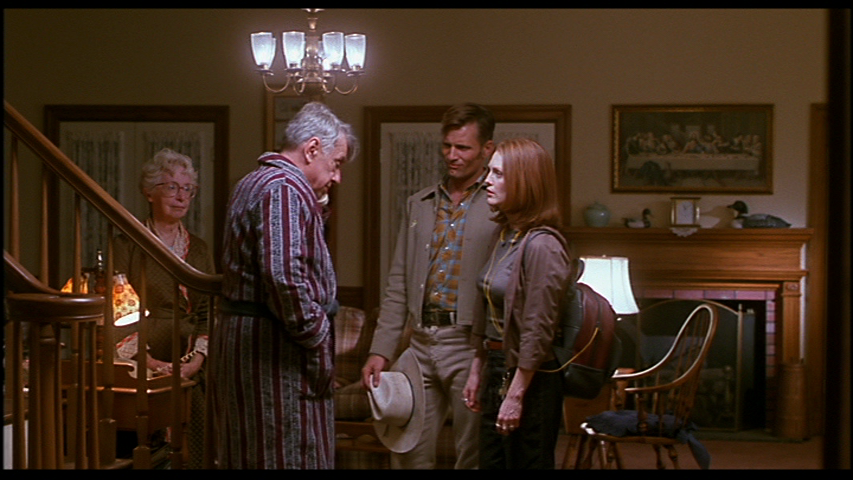
If the special features are to be trusted on the home video release, then Heche had never seen the original film prior to signing onto the project. I’ll be the first to admit her approach to Marion is way different than Leigh’s, but this approach is very diminishing of Marion. Her motives are the same, but her presence offers a more sinister aura. As she packs her things prior running off, she looks excited to be doing something bad. While Leigh has this look of second guessing herself, Heche is looking forward to having her loved ones worry about her. The sympathy vote ran out the door for Marion in 1998, but luckily 2017 came along, with Rihanna giving us a rather brief version of the character.
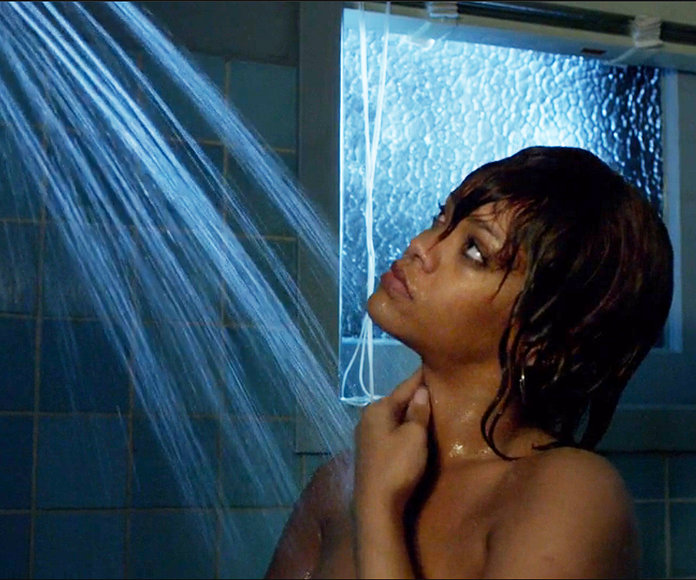
When Bates Motel debuted on television screens in 2013, fans quickly noticed that this was no traditional remake in the sense. After the mysterious death of father, Norman is moved to a new town with his mother, Norma, where they use their insurance money to buy a motel and the house behind it to start over. However, the town of White Pine Bay holds many secrets as well as peculiar characters who interrupt the world the Bates family have attempted to create. Also, we were introduced to new characters like Dylan, Norma’s other son who is the result of the incestual relationship between her and her brother, Caleb. There’s also Bradley, the popular girl at school who takes Norman’s virginity. Fans developed favorites out of Sheriff Romero who later became Norma’s husband and Emma, Norman’s best friend who becomes almost like a daughter to Norma.
Hidden beneath these new storylines was its core: the unhealthy relationship between Norman and Norma. Despite Norman’s erratic behavior and her suspicions that he may be responsible for the murders in town, Norma always covers up for him and attempts to make herself believe that he is innocent. It wasn’t until season four where she gets him committed as his blackouts have escalated and she no longer can keep him under control as he now believes she is actually the one behind the murders. After he is released prematurely, Norman and Norma are convince that they are the only ones who can look out for each other and the world inside their home is all they need. Norman attempts to kill himself and her with carbon monoxide, but he survives.
This leads to the final season where we enter the PSYCHO universe as Norman meets and falls for Madeline Loomis. Not only does Madeline look eerily like his dead mother, she happens to the wife of Sam Loomis, a cheating womanizer who is bringing a more innocent Marion Crane to the Bates Motel for sex. Marion is completely unaware of that she is in love with a married man and finds out only after she has stolen a large amount from her job in an impulsive reaction. This Marion ends up living, never knowing Norman’s dark side, but Sam ends up at the other side of the knife in a bloody variation of the infamous shower scene which happens to be Norman’s first conscious kill.
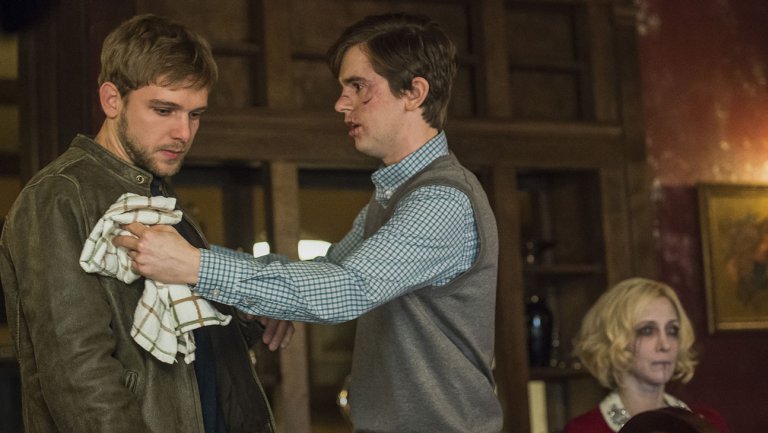
Ultimately, Norman ends up dying in his brother’s arms, with visions of himself as a young boy running into his mother’s arms in the most emotional sequences in genre television. Bates Motel was the PSYCHO remake we didn’t realize we wanted and it’s something longtime fans will cherish. This version of Norman Bates told a story we only heard of and we ended up falling in love with Mother as if she were our own. Even her death, which we all knew was going to happen, came off as shocking, and a great personal loss. A lot of this is due to the underrated talent that is Vera Farmiga who helped define a character we didn’t know too much about.
We have now been treated to different versions of the PSYCHO universe and fans have plenty to discuss about the directions chosen. Whether you want to stick with the classic, go with an experiment in retelling the same story, or venture into a whole new territory spanning 50 episodes, Norman and Mother will forever hold us in their arms, even if it kills us.
REVISIT THE FIRST INSTALLMENT OF THE COLUMN…
THE ‘I SPIT ON YOUR GRAVE’ EDITION
Tags: Alfred Hitchcock, Anne Heche, anthony perkins, Bernard Herrmann, Columns, Gus Van Sant, Horror, Janet Leigh, John Gavin, Julianne Moore, norman bates, Philip Baker Hall, psycho, remakes, Rihanna, Robert Bloch, Saul Bass, Thrillers, TV, Vera Farmiga, Vera Miles, Viggo Mortensen, Vince Vaughn, William H. Macy

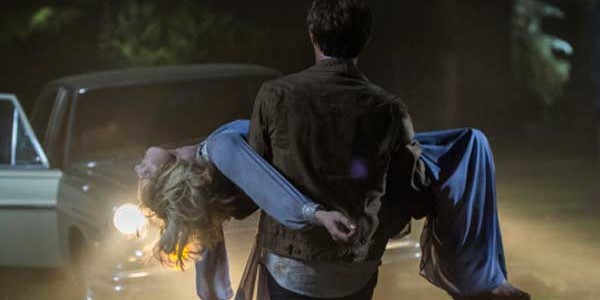

No Comments